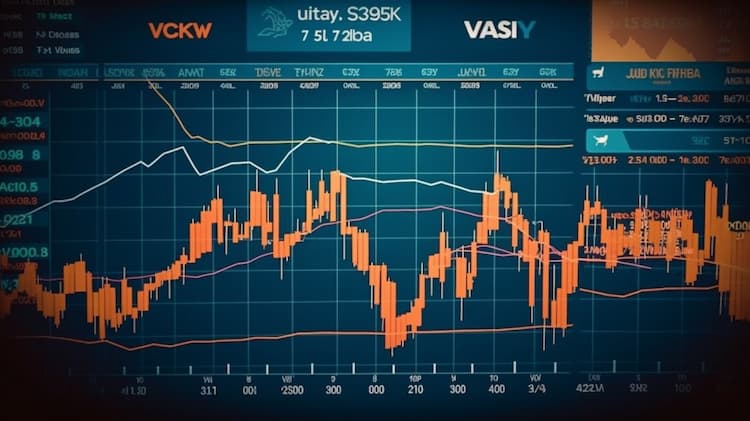ESGS ISSUER
The ESGS ETF, issued by Ameriprise Financial, is a socially responsible investment vehicle designed to align with environmental, social, and governance (ESG) principles. This ETF seeks to track a carefully curated index of companies that exhibit strong ESG practices. By investing in ESGS, investors can support companies committed to sustainable and responsible business practices while potentially benefiting from long-term financial performance.
ESGS DIVIDEND
The ESGS Dividend, follows a unique dividend distribution strategy aligned with its Environmental, Social, and Governance (ESG) investment principles. This ETF primarily invests in companies with strong ESG profiles, which may impact its dividend eligibility. Dividends from ESGS are typically distributed on a semi-annual or annual basis, depending on the individual dividend policies of the socially responsible companies within its portfolio. While ESGS may not prioritize high dividend yields, it offers investors an opportunity to align their investment goals with ESG values while potentially receiving modest dividend returns.
ESGS TRACKING
ESGS, the Environmental, Social, and Governance (ESG) tracking ETF, utilizes an indexing investment approach to replicate the performance of the Index, which was developed and is owned by Columbia Management Investment Advisers, LLC. This ETF invests at least 80% of its assets in the component securities of the Index, which comprises U.S. large- and mid-cap companies excluding real estate investment trusts (REITs). The Index incorporates Columbia Management's proprietary ESG Materiality Ratings (ESGM Ratings) to identify companies with high total return potential. It screens companies based on forward annualized dividend yield, ESGM Rating of 1 or 2, and certain exclusions, including involvement in controversial activities. The Index is reconstituted quarterly and uses a replication strategy, striving to track the Index's performance by investing in substantially all of its component securities. While the Fund is passively managed and does not take defensive positions, it may overweight or underweight certain holdings, purchase securities not in the Index, or utilize other investment techniques to replicate Index performance. The Fund's methodology allows for concentration in specific industries, aligning with the Index's composition. Moreover, it reserves the right to substitute a different index if necessary. As of October 31, 2022, the Index was concentrated in the financial services sector, reflecting the Fund's exposure to this industry. Through its rigorous methodology and commitment to ESG principles, ESGS provides investors with a targeted approach to ESG investing within the U.S. equity market.
ESGS CORRELATION
The correlation aspect of ESGS, the Environmental, Social, and Governance (ESG) tracking ETF, is crucial for investors seeking to understand its relationship with the broader market and ESG performance. ESGS is designed to track the performance of U.S. large- and mid-cap companies while incorporating ESG principles. Given its focus on companies with strong ESG practices, ESGS's correlation with ESG-focused indexes and benchmarks is particularly relevant. Investors often use ESGS as a tool to align their portfolios with sustainability goals while seeking competitive returns. Additionally, understanding ESGS's correlation with the broader market helps investors gauge its effectiveness as a diversification tool. Utilizing comprehensive data analysis and visualization tools, investors can assess ESGS's performance in various market conditions and its overlap with other investment options. Overall, ESGS's correlation with ESG-focused metrics and broader market indices provides valuable insights for investors looking to integrate sustainability into their investment strategies.s.
ESGS SECTOR
ESGS, the Environmental, Social, and Governance (ESG) tracking ETF, primarily focuses on the U.S. equity market, targeting large- and mid-cap companies that exhibit strong ESG practices. By utilizing Columbia Management's proprietary ESG Materiality Ratings (ESGM Ratings), the ETF selects companies with high total return potential while considering their environmental, social, and governance factors. While ESGS's methodology does not set explicit limits on sector exposures, it may naturally concentrate in industries that demonstrate leadership in ESG principles. This concentration aligns with the ETF's objective of providing investors with exposure to companies that prioritize sustainability and responsible corporate practices. Through its sector-agnostic approach, ESGS offers investors a diversified portfolio that spans various industries, reflecting a comprehensive representation of the U.S. equity market's ESG landscape. However, as of October 31, 2022, the Index, and consequently ESGS, exhibited concentration in the financial services sector, showcasing the prominence of ESG considerations within this industry. Overall, ESGS presents investors with a unique opportunity to align their investment objectives with their values by investing in companies that demonstrate strong ESG performance across various sectors.
ESGS EXPOSURE
ESGS, the Environmental, Social, and Governance (ESG) tracking ETF, provides investors with exposure to a diversified portfolio of U.S. large- and mid-cap companies that prioritize environmental, social, and governance principles. Leveraging Columbia Management's proprietary ESG Materiality Ratings (ESGM Ratings), the ETF selects companies with strong total return potential while considering their ESG performance. By investing at least 80% of its assets in the component securities of the Index, ESGS offers investors broad exposure to companies that exhibit leadership in sustainability and responsible corporate practices. The Index's systematic, rules-based methodology screens companies based on forward annualized dividend yield, ESGM Ratings, and certain exclusions, ensuring that ESGS aligns with investors' sustainability goals. Moreover, ESGS's replication strategy seeks to closely track the Index's performance by investing in substantially all of its component securities, providing investors with a convenient and efficient way to integrate ESG considerations into their investment portfolios. Through its comprehensive approach to exposure, ESGS enables investors to participate in the growth potential of companies that prioritize ESG principles while contributing to positive environmental and social impacts.



